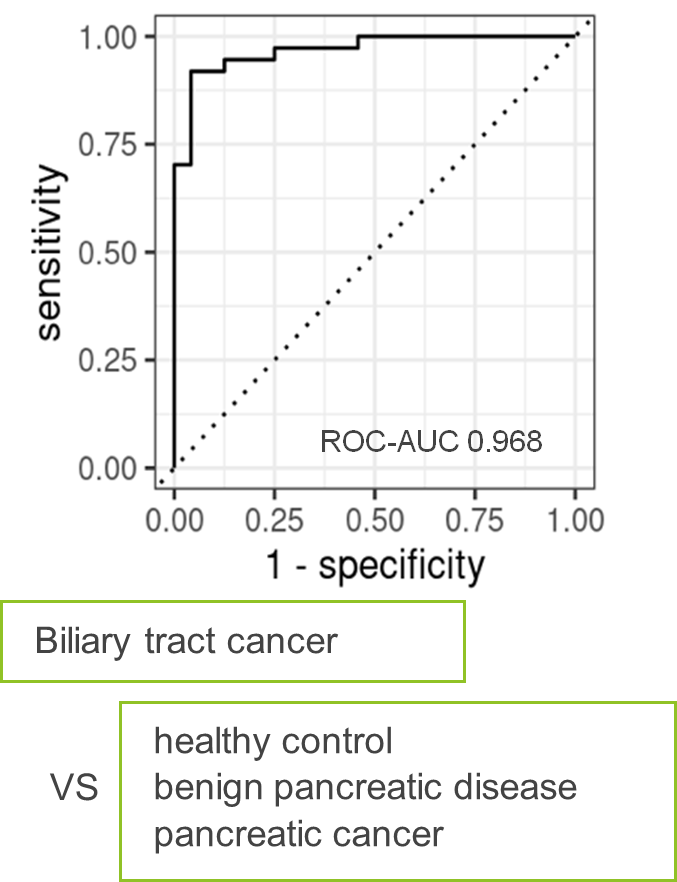Advantages
- Not affected by MS batch-to-batch errors or concentration variations between urine samples.
- Utilize comprehensive data rather than limiting to specific biomarkers. This approach enables accurate diagnostic prediction of heterogeneous patients.
- Can be applied to various diseases other than cancers, and various sample types other than urine.
- Applicable in multi-omics analysis.
Background and Technology
Non-target MS data from different batches is difficult to merge due to the batch-to-batch errors (variations by devices, facilities, and timings). These variations make it difficult to perform AI prediction. Furthermore, in quantitative MS of target substances, it is cumbersome to prepare standard substances for each of a plurality of targets, and the concentration of urine varies greatly between samples, making it difficult to compare quantitative values. Therefore, it is difficult to utilize urinary metabolomic analysis by MS for cancer detection.
On the other hand, due to the heterogeneity of cancer patients, the accuracy of each tumor marker is limited. In this regard, comprehensive analysis is advantageous in expressing patient heterogeneity, and it is desirable to maximize the use of comprehensive analysis for cancer detection. However, as described above, it is difficult with the conventional technology.
The present invention is an analysis method and machine learning model that enables comparison and merging of non-target MS data measured with different devices or batches and is not affected by concentration variation between urine samples. The present invention makes it possible to predict cancer/subtype using non-target MS data. This method is also applicable in multi-omics analysis.
 |
Reference
- Conference presentation (The 82nd Annual Meeting of the Japanese Cancer Association)
Principal Investigator
Taisuke BABA (Nagoya University Hospital)
Current Stage and Next Step
- Regarding the detection of biliary tract cancer, the present invention was applied to non-targeted MS data in the urine of subjects. A machine learning model was trained using the data obtained in 2021 and was prospectively validated by data obtained in 2022. Our AI model detected biliary tract cancer at high sensitivity and specificity (Figure). Similar results have also been obtained regarding pancreatic and gastric cancer.
- We are looking for collaborative partners such as metabolomics companies, MS device manufacturers, diagnostics, clinical testing centers, and software developers to advance program development, dedicated device development, and cost verification.
- We aim to apply it to early cancer detection through health checkups and subtype prediction for personalized medicine.
Project No.BK-04491


